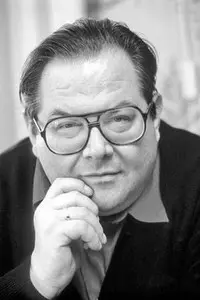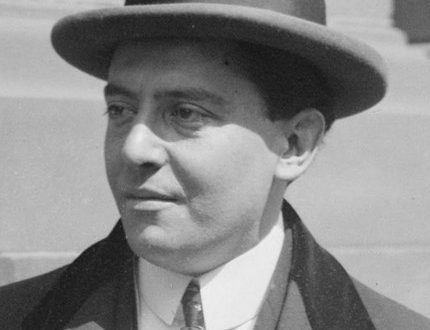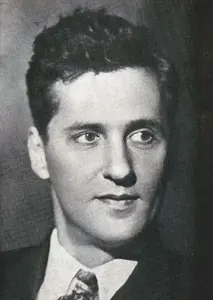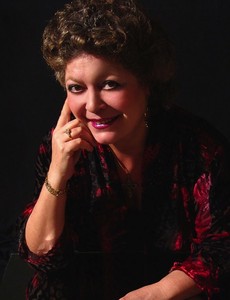
Nikolay Arnoldovich Petrov (Nikolai Petrov) |
Nikolay Petrov

There are chamber performers – for a narrow circle of listeners. (They feel good in small, modest rooms, among “their own” – how good it was for Sofronitsky in the Scriabin Museum – and somehow feel uncomfortable on the big stages.) Others, on the contrary, are attracted by the magnificence and luxury of modern concert halls, crowds of thousands of listeners, scenes flooded with lights, mighty, loud “Steinways”. The first seem to be talking with the public – quietly, intimately, confidentially; the second born speakers are strong-willed, self-confident, with strong, far-reaching voices. It has been written about Nikolai Arnoldovich Petrov more than once that he was destined by fate for the big stage. And that’s right. Such is his artistic nature, the very style of his playing.
- Piano music in the Ozon online store →
This style finds, perhaps, the most precise definition in the words “monumental virtuosity”. For people like Petrov, it’s not just that everything “succeeds” on the instrument (it goes without saying …) – everything looks big, powerful, large-scale for them. Their play impresses in a special way, as everything majestic impresses in art. (Doesn’t we perceive a literary epic somehow differently than a short story? And doesn’t St. Isaac’s Cathedral awaken completely different feelings than the charming “Monplaisir”?) There is a special kind of effect in musical performance art – the effect of strength and power, something sometimes incommensurable with ordinary samples; in Petrov’s game you almost always feel it. That is why they produce such an impressive impression of the artist’s interpretation of such paintings as, say, Schubert’s “Wanderer”, Brahms’ First Sonata and much more.
However, if we start talking about Petrov’s successes in repertoire, we probably should not start with Schubert and Brahms. Probably not romantic at all. Petrov became famous primarily as an excellent interpreter of Prokofiev’s sonatas and concertos, most of Shostakovich’s piano opuses, he was the first performer of Khrennikov’s Second Piano Concerto, Khachaturian’s Rhapsody Concerto, Eshpai’s Second Concerto, and a number of other contemporary works. It is not enough to say about him – a concert artist; but a propagandist, popularizer of the new in Soviet music. A propagandist more energetic and dedicated than any other pianist of his generation. To some, this side of his work may not seem too complicated. Petrov knows, he was convinced in practice – it has its own problems, its own difficulties.
They especially love Rodion Shchedrin. His music – the Two-Part Invention, Preludes and Fugues, Sonata, Piano Concertos – he has been playing for a long time: “When I perform Shchedrin’s works,” says Petrov, “I have the feeling that this music was written by my own hands – so much for me as a pianist everything here seems convenient, foldable, expedient. Everything here is “for me” – both technically and artistically. Sometimes one hears that Shchedrin is complex, not always understandable. I don’t know… When you get to know his work closely, you can only judge what you know well, right? – you see how much is really significant here, how much internal logic, intellect, temperament, passion … I learn Shchedrin very quickly. I learned his Second Concerto, I remember, in ten days. This happens only in those cases when you are sincerely fond of music … “
It has been said more than once about Petrov, and it is fair that he is a figure typical for today’s generation of performing musicians, “new generation” artists, as critics like to put it. His stage work is perfectly organized, he is invariably precise in performing actions, persistent and firm in putting his ideas into practice. It was once said about him: “a brilliant engineering mind …”: his thinking is indeed marked by complete certainty – no ambiguities, omissions, etc. When interpreting music, Petrov always knows perfectly well what he wants, and, not expecting “favors from nature ”(mysterious flashes of improvisational insights, romantic inspirations are not his element), achieves his goal long before entering the stage. He is for real hopeful on stage – can play very well or just well, but never breaks down, does not go below a certain level, won’t play well. Sometimes it seems that the well-known words of G. G. Neuhaus are addressed to him – in any case, to his generation, to the concertgoers of his warehouse: “… Our young performers (of all kinds of weapons) have become significantly smarter, more sober, more mature, more focused, more collected, more energetic (I propose to multiply adjectives) than their fathers and grandfathers, hence their great superiority in technology… » (Neigauz G. G. Reflections of a member of the jury//Neigauz G. G. Reflections, memories, diaries. S. 111). Earlier, there was already talk about the huge technical superiority of Petrov.
He, as a performer, is “comfortable” not only in the music of the XNUMXth century – in Prokofiev and Shostakovich, Shchedrin and Eshpay, in the piano works of Ravel, Gershwin, Barber and their contemporaries; no less freely and easily it is also expressed in the language of the masters of the XNUMXth century. By the way, this is also typical for an artist of the “new generation”: the repertoire arc “classics – XX century”. So, there are clavirabends at Petrov, on which the performance of Bach conquers. Or, say, Scarlatti – he plays many of the sonatas of this author, and plays excellently. Almost always, Haydn’s music is good both in live sound and on record; a lot of successful in his interpretations of Mozart (for example, the Eighteenth Sonata in F major), early Beethoven (Seventh Sonata in D major).
Such is the image of Petrov – an artist with a healthy and clear worldview, a pianist of “phenomenal capabilities”, as the music press writes about him, without exaggeration. He was destined by fate to become an artist. His grandfather, Vasily Rodionovich Petrov (1875-1937) was a prominent singer, one of the luminaries of the Bolshoi Theater in the first decades of the century. Grandmother studied at the Moscow Conservatory with the famous pianist K. A. Kipp. In her youth, her mother took piano lessons from A. B. Goldenweiser; father, a cellist by profession, once won the title of laureate at the First All-Union Competition of Performing Musicians. From time immemorial, art has been lived in the Petrovs’ house. Among the guests one could meet Stanislavsky and Kachalov, Nezhdanova and Sobinov, Shostakovich and Oborin…
In his performing biography, Petrov distinguishes several stages. In the beginning, his grandmother taught him music. She played him a lot – opera arias interspersed with simple piano pieces; he took pleasure in picking them up by ear. Grandmother was later replaced by the teacher of the Central Music School Tatyana Evgenievna Kestner. Opera arias gave way to instructive educational material, selection by ear – strictly organized classes, systematic development of technique with mandatory credits at the Central Music School for scales, arpeggios, etudes, etc. – all this benefited Petrov, gave him a wonderful pianistic school. “Even when I was a student of the Central Music School,” he recalls, “I became addicted to going to concerts. He liked to go to the class evenings of the leading professors of the conservatory – A. B. Goldenweiser, V. V. Sofronitsky, L. N. Oborin, Ya. V. Flier. I remember that the performances of the students of Yakov Izrailevich Zak made a special impression on me. And when the time came to decide – from whom to study further after graduation – I did not hesitate for a minute: from him, and from no one else … “
With Zach, Petrov immediately established a good agreement; in the person of Yakov Izrailevich, he met not only a wise mentor, but also an attentive, caring guardian to the point of pedantry. When Petrov was preparing for the first competition in his life (named after Van Cliburn, in the American city of Fort Worth, 1962), Zak decided not to part with his pet even during the holidays. “For the summer months, we both settled in the Baltic States, not far from each other,” says Petrov, “meeting daily, making plans for the future and, of course, working, working … Yakov Izrailevich was worried on the eve of the competition no less than me. He literally wouldn’t let me go…” In Fort Worth, Petrov received the second prize; it was a major victory. It was followed by another: second place in Brussels, at the Queen Elizabeth Competition (1964). “I remember Brussels not so much for competitive battles,” Petrov continues the story of the past, “but for its museums, art galleries, and the charm of ancient architecture. And all this because I. I. Zak was my companion and guide around the city – it was hard to wish for a better one, believe me. At times it seemed to me that in the painting of the Italian Renaissance or the canvases of the Flemish masters, he understands no worse than in Chopin or Ravel … “
Many statements and pedagogical testaments of Zack were firmly imprinted in the memory of Petrov. “On the stage, you can win only due to the high quality of the game,” his teacher once remarked; Petrov often thought about these words. “There are artists,” he argues, “who are easily forgiven for some playing errors. They, as they say, take others … ”(He is right: the public knew how not to notice technical flaws in K. N. Igumnov, not to attach importance to the vagaries of memory in G. G. Neuhaus; she knew how to look past the troubles of V. V. Sofronitsky with the first numbers of his programs, on random notes from Cortot or Arthur Rubinstein.) “There is another category of performers,” Petrov continues his thought. “The slightest technical oversight is immediately visible to them. For some, it happens that “a handful” of incorrect notes go unnoticed, for others (here they are, the paradoxes of performance …) a single one can spoil the matter – I remember that Hans Bülow lamented about this … I, for example, learned a long time ago that I have no right to a technical blot, inaccuracy, failure – such is my lot. Or rather, such is the typology of my performance, my manner, my style. If after the concert I don’t have the feeling that the quality of the performance was high enough, this is tantamount to a stage fiasco for me. No ranting about inspiration, pop enthusiasm, when, they say, “anything happens,” I will not be reassured here.
Petrov is constantly trying to improve what he calls the “quality” of the game, although, it is worth repeating, in terms of skill, he is already at the level of the highest international “standards” today. He knows his reserves, as well as his problems, performance tasks. He knows that sound outfits in individual pieces of his repertoire could have looked more elegant; now no, no, and it is noticed that the pianist’s sound is heavy, sometimes too strong – as they say, “with lead.” This is not bad, perhaps, in Prokofiev’s Third Sonata or in the finale of the Seventh, in the mighty climaxes of Brahms’ sonatas or Rachmaninov’s concertos, but not in Chopin’s diamond ornamentation (on Petrov’s posters one could find four ballads, four scherzos, a barcarolle, etudes and some other works this author). It is likely that more secrets and exquisite halftones will be revealed to him over time in the sphere of pianissimo – in the same piano poetics of Chopin, in Scriabin’s Fifth Sonata, in Ravel’s Noble and Sentimental Waltzes. It is sometimes too hard, unyielding, a little straightforward in its rhythmic movement. This is quite in place in Bach’s toccata pieces, in Weber’s instrumental motor skills (Petrov loves and plays his sonatas superbly), in some classical Allegro and Presto (such as the first part of Beethoven’s Seventh Sonata), in a number of works of the modern repertoire – Prokofiev, Shchedrin, Barber. When a pianist performs Schumann’s Symphonic Etudes or, say, the languid cantilena (middle part) of Liszt’s Mephisto-Waltz, something from the romantic lyrics or the Impressionists’ repertoire, you begin to think that it would be nice if his rhythm were more flexible, spiritualized, expressive … However, there is no technique that cannot be improved. An old truth: one can progress in art endlessly, with each step leading the artist upward, only more exciting and exciting creative prospects open up.
If a conversation is started with Petrov on a similar topic, he usually replies that he often returns in thought to his performing past – interpretations of the sixties. What was once considered unconditionally successful, bringing him laurels and praise, today does not satisfy him. Almost everything now, decades later, wants to be done differently – to illuminate from new life and creative positions, to express it with more advanced performing means. He constantly conducts this kind of “restoration” work – in B-flat major (No. 21) Schubert’s sonata, which he played as a student, in Mussorgsky’s Pictures at an Exhibition, and in many other things. It’s not easy to rethink, reshape, remake. But there is no other way out, Petrov repeats over and over again.
In the mid-eighties, Petrov’s successes in the concert halls of Western Europe and the USA became more and more noticeable. The press places enthusiastic responses to his playing, tickets for the performances of the Soviet pianist are sold out long before the start of his tour. (“Before his performance, a huge queue for tickets circled the building of the concert hall. And two hours later, when the concert ended, to the enthusiastic applause of the audience, the conductor of the local symphony orchestra took from the pianist a solemn promise to perform again in Brighton next year. Such success accompanied Nikolai , Petrov in all the cities of Great Britain where he performed” // Soviet culture. 1988. March 15.).
Reading newspaper reports and eyewitness accounts, one may get the impression that Petrov the pianist is treated more enthusiastically abroad than at home. For at home, let’s be frank, Nikolai Arnoldovich, with all his indisputable achievements and authority, did not and does not belong to the idols of mass audiences. By the way, you encounter a similar phenomenon not only in his example; there are other masters whose triumphs in the West look more impressive and larger than in their native land. Perhaps here certain differences in tastes, in aesthetic predilections and inclinations are manifested, and therefore recognition with us does not necessarily mean recognition there, and vice versa. Or, who knows, something else plays a role. (Or maybe there really is no prophet in his own country? Petrov’s stage biography makes you think about this topic.)
However, arguments about the “popularity index” of any artist are always conditional. As a rule, there are no reliable statistical data on this subject, and as for the reviews of reviewers – domestic and foreign – they can least of all serve as a basis for reliable conclusions. In other words, Petrov’s growing successes in the West should not overshadow the fact that he still has a considerable number of admirers in his homeland – those who clearly like his style, manner of playing, who share his “creed” in performance.
Let us note at the same time that Petrov owes much of his interest to the programs of his speeches. If it is true that putting together a concert program well is a kind of art (and this is true), then Nikolai Arnoldovich undoubtedly succeeded in such an art. Let us recall at least what he performed in recent years – some fresh, original idea was visible everywhere, a non-standard repertoire idea was felt in everything. For example: “An Evening of Piano Fantasies”, which includes pieces written in this genre by C. F. E. Bach, Mozart, Mendelssohn, Brahms and Schubert. Or “French music of the XVIII – XX centuries” (a selection of works by Rameau, Duke, Bizet, Saint-Saens and Debussy). Or else: “On the 200th anniversary of the birth of Niccolò Paganini” (here, compositions for piano were combined, one way or another connected with the music of the great violinist: “Variations on a Theme of Paganini” by Brahms, studies “After Paganini” by Schumann and Liszt, “Dedication Paganini” Falik). It is possible to mention in this series such works as Berlioz’s Fantastic Symphony in Liszt’s transcription or the Second Piano Concerto of Saint-Saens (arranged for one piano by Bizet) – except for Petrov, this is perhaps not found in any of the pianists. .
“Today I feel a real dislike for stereotyped, “hackneyed” programs,” says Nikolai Arnoldovich. “There are compositions from the category of especially “overplayed” and “running” ones, which, believe me, I simply cannot perform in public. Even if they are excellent compositions in themselves, such as Beethoven’s Appassionata or Rachmaninov’s Second Piano Concerto. After all, there is so much wonderful, but little-performed music – or even simply unknown to listeners. To discover it, one has only to take a step away from the well-worn, beaten paths …
I know that there are performers who prefer to include well-known and popular in their programs, because this guarantees to a certain extent the occupancy of the Philharmonic Hall. Yes, and there is practically no risk of encountering misunderstanding … For me personally, understand me correctly, such an “understanding” is not needed. And false successes do not attract me either. Not every success should please – over the years you realize this more and more.
Of course, it may be that a piece often played by others appeals to me too. Then I can, of course, try to play it. But all this should be dictated by purely musical, creative considerations, and not by any means opportunistic and not “cash”.
And it’s really a shame, in my opinion, when an artist plays the same thing from year to year, from season to season. Our country is huge, there are plenty of concert venues, so you can, in principle, “roll” the same works many times. But is it good enough?
A musician today, in our conditions, must be an educator. I am personally convinced of this. It is the educational beginning in the performing arts that is especially close to me today. Therefore, by the way, I deeply respect the activities of such artists as G. Rozhdestvensky, A. Lazarev, A. Lyubimov, T. Grindenko … “
In the work of Petrov, you can see its different facets and sides. It all depends on what you pay attention to, on the angle of view. From what to look at first of all, what to put emphasis on. Some notice in the pianist mainly “chill”, others – “the impeccability of the instrumental embodiment.” Someone lacks in it “unbridled impetuosity and passion”, but someone quite lacks “the perfect clarity with which every element of music is heard and recreated.” But, I think, no matter how one evaluates Petrov’s game and no matter how one reacts to it, one cannot fail to pay tribute to the exceptionally high responsibility with which he treats his work. That’s really who can really be called a professional in the highest and best sense of the word …
“Even if there are, say, only 30-40 people in the hall, I will still play with full dedication. The number of those present at the concert is of no fundamental importance to me. By the way, the audience that came to listen to this particular performer, and not another, namely this program that interested her, is such an audience for me most of all. And I appreciate her much more than the visitors of the so-called prestigious concerts, for whom it is only important to go where everyone goes.
I could never understand the performers who complain after the concert: “head, you know, it hurt”, “hands were not played”, “poor piano …”, or refer to something else, explaining the unsuccessful performance. In my opinion, if you went on stage, you must be on top. And reach your artistic maximum. No matter what happens! Or don’t play at all.
Everywhere, in every profession, its own decency is required. Yakov Izrailevich Zak taught me this. And today, more than ever, I understand how right he was. To go on stage out of shape, with an unfinished program, not prepared with all care, to play carelessly – all this is simply dishonorable.
And vice versa. If a performer, despite some personal hardships, ill health, family dramas, etc., still played well, “on a level,” such an artist deserves, in my opinion, deep respect. They can say: someday it’s not a sin and relax … No and no! Do you know what happens in life? A person puts on once a stale shirt and uncleaned shoes, then another, and … It’s easy to go down, you just have to give yourself some relief.
You have to respect the work you do. Respect for Music, for the Profession is, in my opinion, the most important thing.”
… When, after Fort Worth and Brussels, Petrov first announced himself as a concert performer, many saw in him, first of all, a virtuoso, a newly-born pianist athlete. Some people were inclined to reproach him with hypertrophied technicalism; Petrov could answer this with the words of Busoni: in order to rise above a virtuoso, one must first become one … He managed to rise above a virtuoso, the pianist’s concerts in the last 10-15 years have confirmed this with all evidence. His play has become more serious, more interesting, more creatively convincing, without losing its inherent strength and power. Hence the recognition that came to Petrov on many stages of the world.
G. Tsypin, 1990





